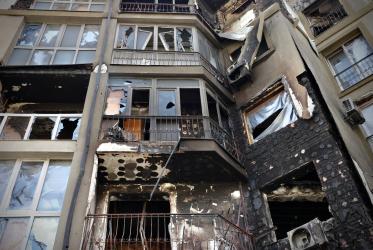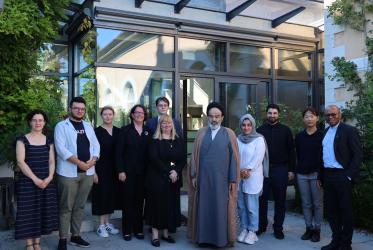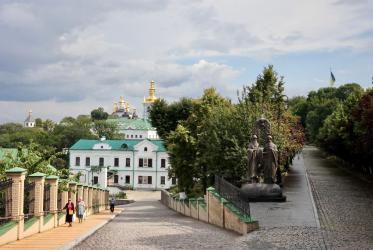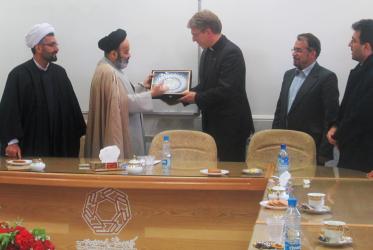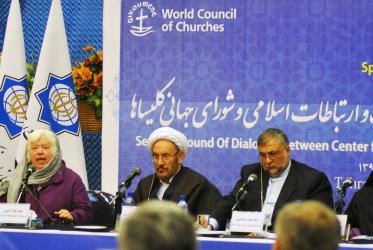Displaying 1 - 14 of 14
WCC well-represented in Religions for Peace leadership
07 October 2019
Dialogue on sacred texts yields peace-building insights
31 August 2017
G20 summit: call to pray for peace in Hamburg
07 July 2017
WCC general secretary conveys message of “justice and peace” in Iran
24 February 2014
